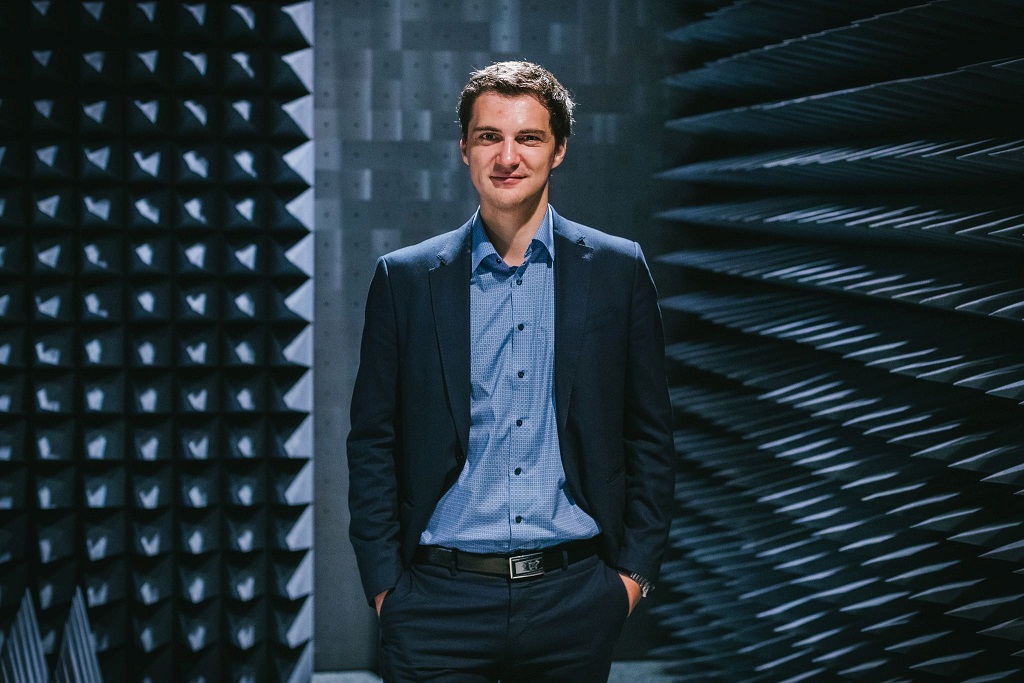Granted accredited status, Széchenyi István University’s Radio Frequency Testing Laboratory can perform electromagnetic compatibility tests and commercial tests according to the standard defined by the Radio Equipment Directive - the latter being the only one in Hungary.
The Radio Frequency Testing Laboratory was set up at Széchenyi István University in 2006, to study wireless radiation and waves. István Drotár, head of the laboratory, said that the facility serves both scientific research and businesses, both manufacturers and developers.
“The most important element of the lab is the non-reflective, shielded measurement space to which a number of instruments are connected. In this chamber, we can perform the tests prescribed by European Union directives. One is the EMC, or Electromagnetic Compatibility Directive, which requires all electronic industrial household appliances, from microwave ovens to floor lamps, to be subjected to a compatibility test before being placed on the market.

The other is the Radio Equipment Directive (RED), which applies to all devices that are controlled and communicated with using wireless technology. Two types of compliance testing are mandatory before applying for certification and placing it on the market. One is the emission test, which shows the extent to which the device emits radiation. In addition, the extent to which it can withstand disturbances while still functioning (immunity) needs to be examined. The importance of this is easy to see: it should not happen by accident, said in a kindergarten, that the fire alarm system does not send a fire notification, because nearby children are playing with a remote-controlled car operating on the same wireless communication band, which has a stronger signal,” explained István Drotár.
The specialist was pleased to report that the laboratory has been accredited by the National Accreditation Authority, so it can now perform not only inter-developmental support tests but also compliance tests. According to István Drotár, there are four or five EMC-accredited laboratories in the country, but Győr is the only one in the higher education environment; true, demand is high as the number of electronic devices is increasing. At the same time, the only market-oriented RED-accredited laboratory at Széchenyi István University is not only among higher education institutions but in the entire country.
If you want to read more about Széchenyi István University’s Radio Frequency Testing Laboratory, visit the official website of Széchenyi István University.
Source: Study in Hungary